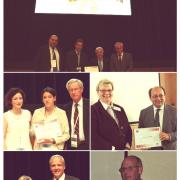
In July, Claudia Quini, the then President of the OIV, gave an award to Dr Karl-Heins Wilms (picture: Michael Koehler received the award on behalf of Dr Karl-Heins Wilms), who has devoted his professional activity to the wine sector for more than 20 years as the Head of the German delegation of the OIV. She highlighted the exemplary nature of the German participation in the OIV which, in this period, has hosted two world congresses and had two presidents of the Organisation.
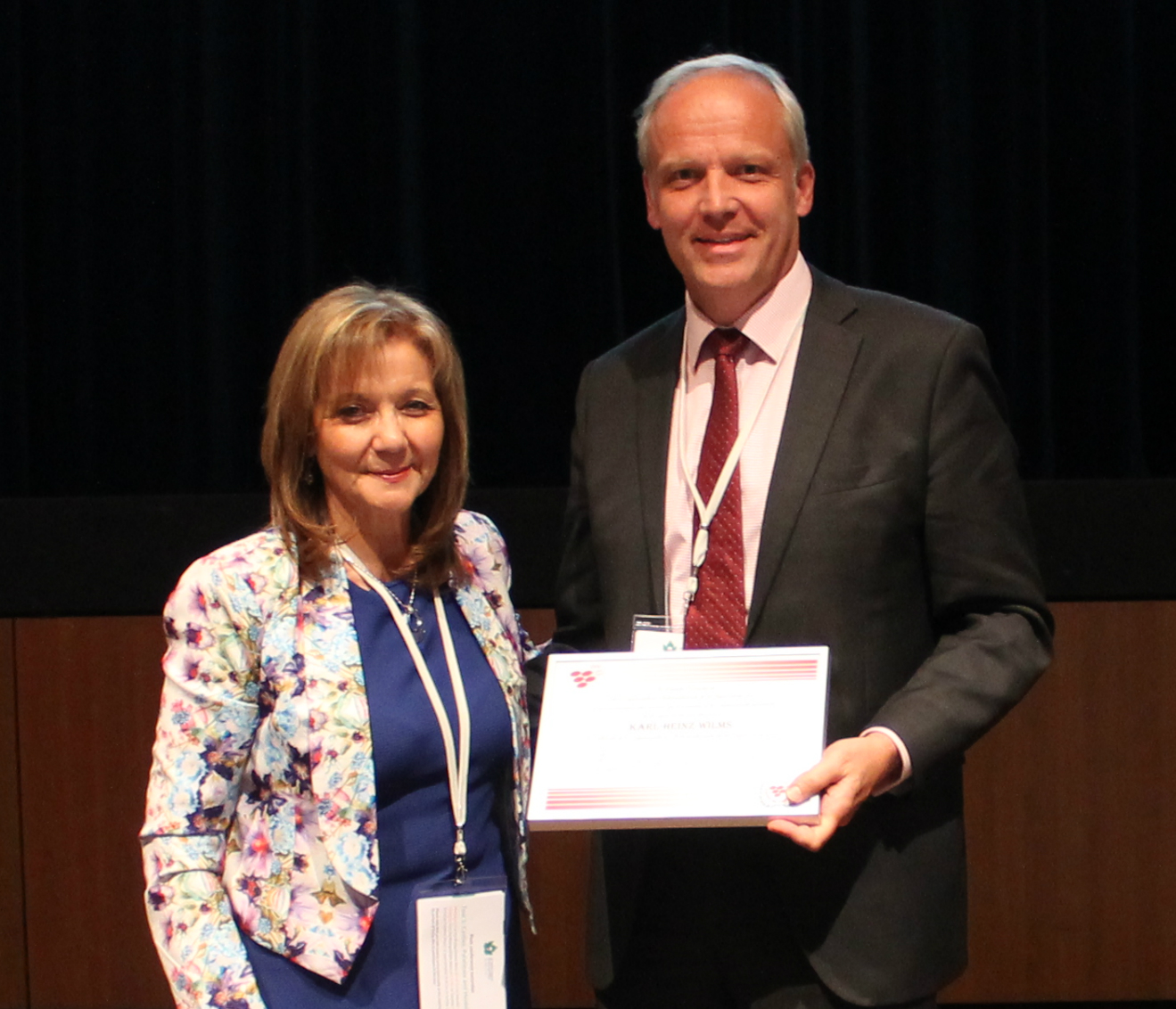
Mr Yves Bénard, Vice-President of the OIV, paid tribute, posthumously, to his Italian oenologist colleague, Professor Roberto Ferrarini. He was the Director of Research and Director of the departments of Development and University Research; a professor on the viticultural and oenological sciences course at the University of Verona and a member of the Italian Academy of Vine and Wine; as well as a member of the Italian OIV delegation on behalf of the Ministry of Agriculture, notably as part of the "Oenology" Commission and the "Technology" Expert Group.
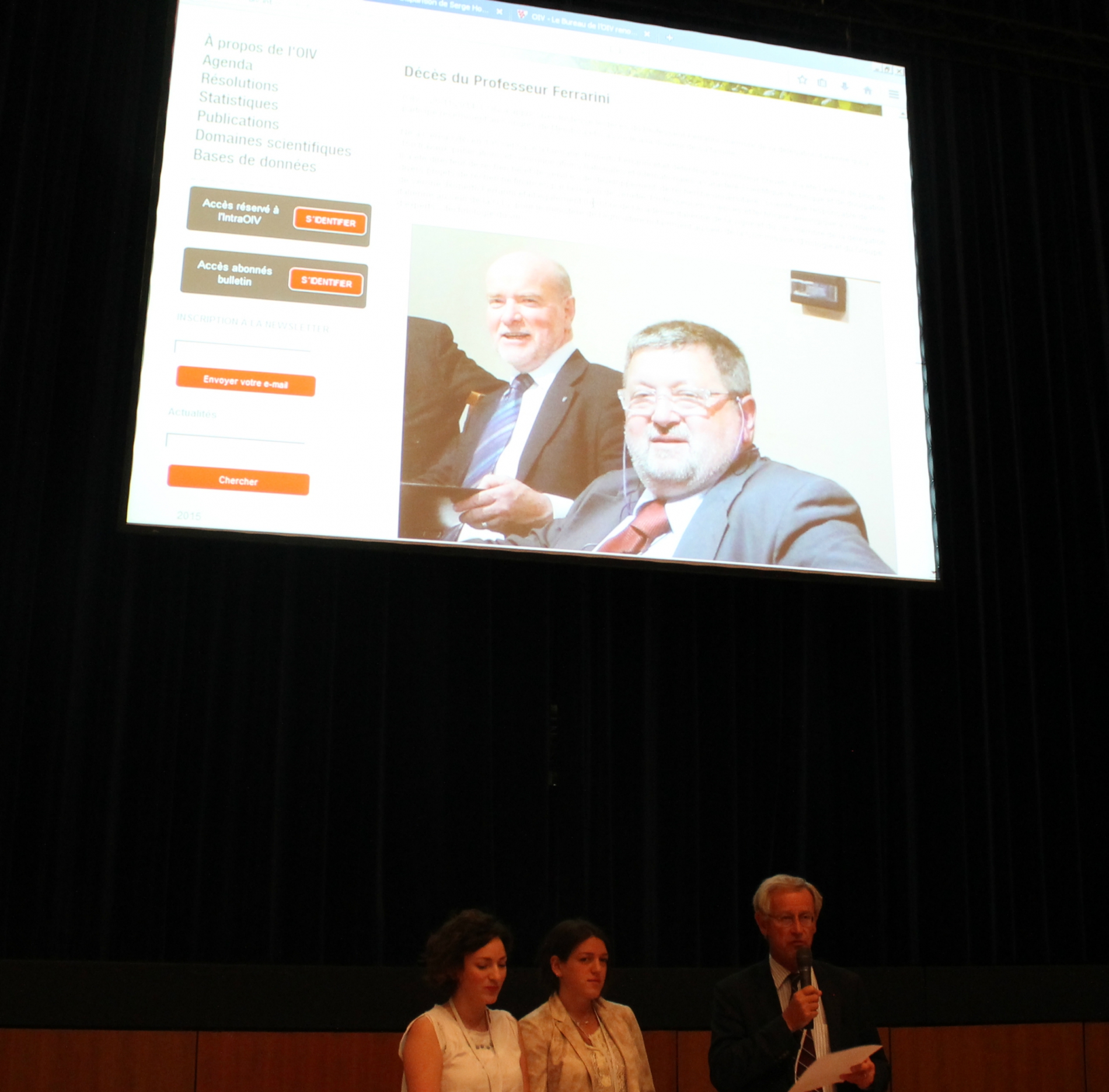
Mr Jean-Marie Aurand, Director General of the OIV, gave a posthumous award to Mr Serge Hochar, who was involved in OIV activities for 20 years and was a major player in the renovation and development of Lebanon's wine sector. He was one of the architects of Lebanon's wine legislation established in 2000, Founder and President of the Union Vinicole du Liban and, more recently, President of the National Institute of Vine and Wine. He successfully positioned Lebanese wines on the international stage, a tireless ambassador dedicated to his passion and vision for his country's viticulture.
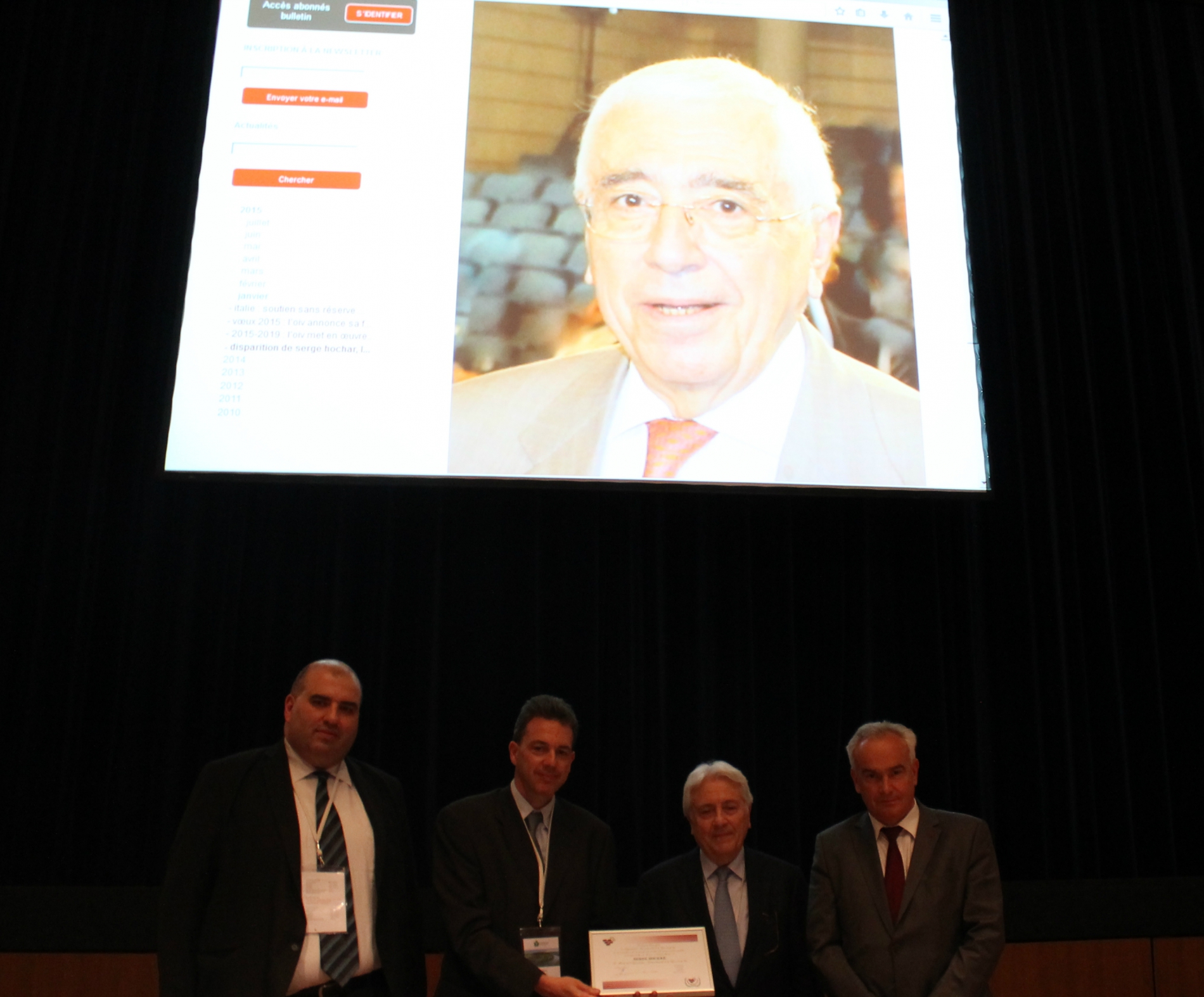
In October, the President of the OIV, Monika Christmann, presented the OIV Merit Award to Jean-Luc Dairien, currently the Director General of the French National Institute of origin and quality (INAO). She stressed Mr Dairien's contribution to the vitivinicultural sector both at the national level in his work as the ONIVINS Director as well as in his devotion to the OIV's “Economy and Law” Commission for ten years as its Scientific Secretary and President.
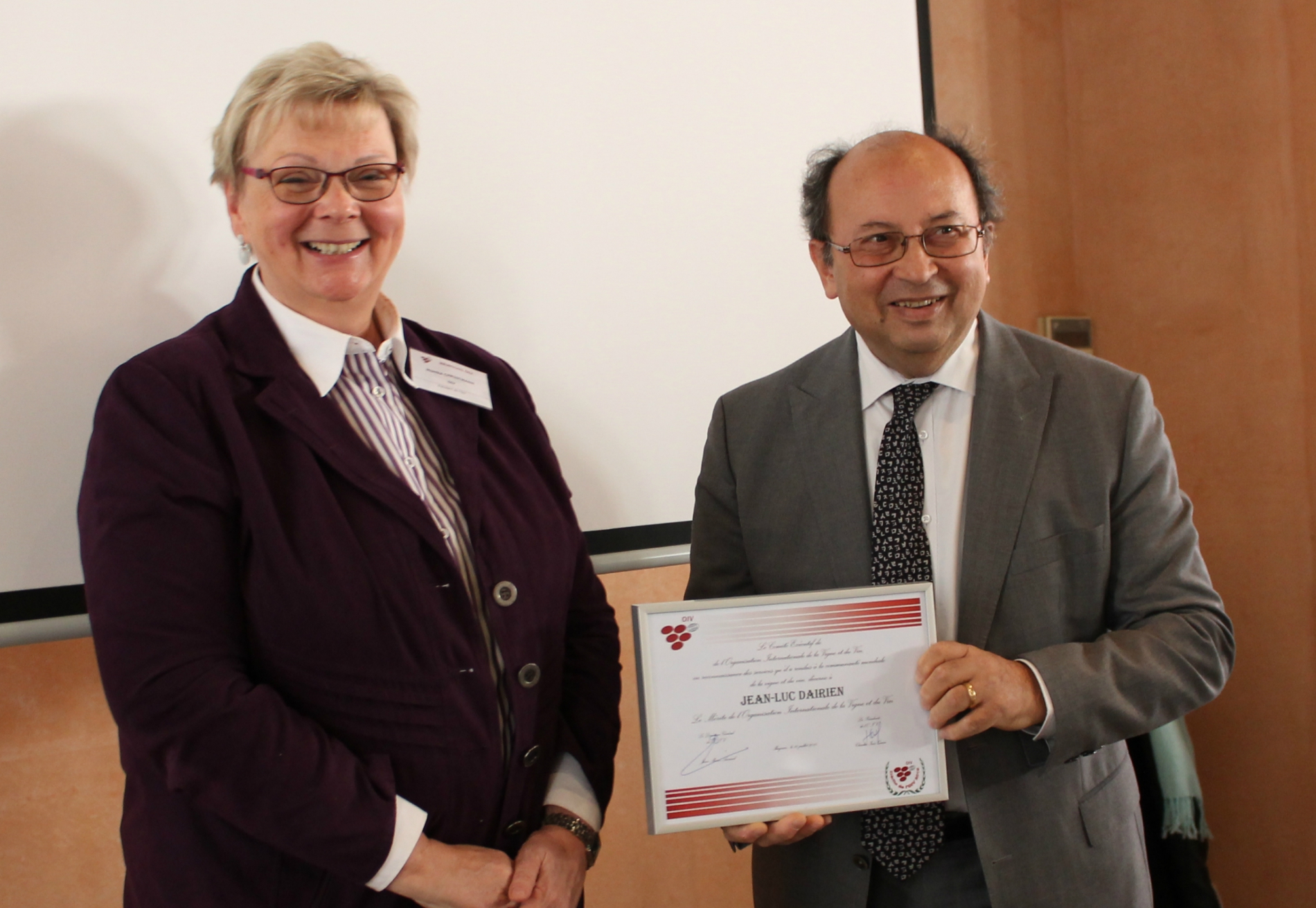
Finally, the OIV also granted its Merit Award to James Finkle, who died in September 2015 before receiving this recognition. He chaired the International Federation of Wines and Spirits (FIVS) for nearly 17 years. Under his leadership, the Federation has become the representative of the wine sector, particularly as an active observer with the OIV or Codex Alimentarius. The OIV pays tribute to the memory of a passionate man who devoted himself to the development of vitivinicultural activity around the world.
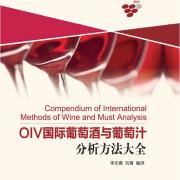
In the context of the relationship that the OIV General Secretariat has enjoyed with the People's Republic of China for many years, the OIV is pleased to announce the translation and publication of the OIV Compendium of International Methods of Analysis of Wines and Musts into Chinese [pp.1-292] [pp.293-595] [pp.596-830].
In 2013, during the various meetings between the Guangdong Inspection and Quarantine Technology Center (IQTC) and the China National Research Institute of Food and Fermentation Industries, the heads of these Chinese organisations had made the proposal to translate the Compendium of International Methods of Analysis of Wines and Musts . These directors had also at the time been invited to participate in the meetings of the "Methods of Analysis" Sub-commission.
This publication is of great importance given that the responsibilities of the Inspection and Quarantine Centers include control operations for products imported into China. As such, the translation of the OIV Compendium into Chinese is a step closer towards international recognition of the methods of analysis adopted by the OIV.
The Compendium of International Methods of Analysis of Wines and Musts was published for the first time in 1962. It has been republished and updated regularly, integrating on a yearly basis the complementary methods established annually by the "Methods of Analysis" Sub-Commission and approved by the General Assembly.
The Compendium plays a key role in standardising methods of analysis. Many wine producing countries have introduced its definitions and methods into their own regulations.
Furthermore, certain bilateral agreements relating to the wine trade recognise that the methods of analysis published by the OIV prevail as reference methods for the determination of the analytical composition of wine as part of inspection procedures and thus contribute to facilitating international trade.
The OIV would especially like to thank the heads of the Guangdong Inspection and Quarantine Technology Center for their work and commitment in carrying out this important task of translating the OIV Compendium of International Methods of Analysis of Wines and Musts .